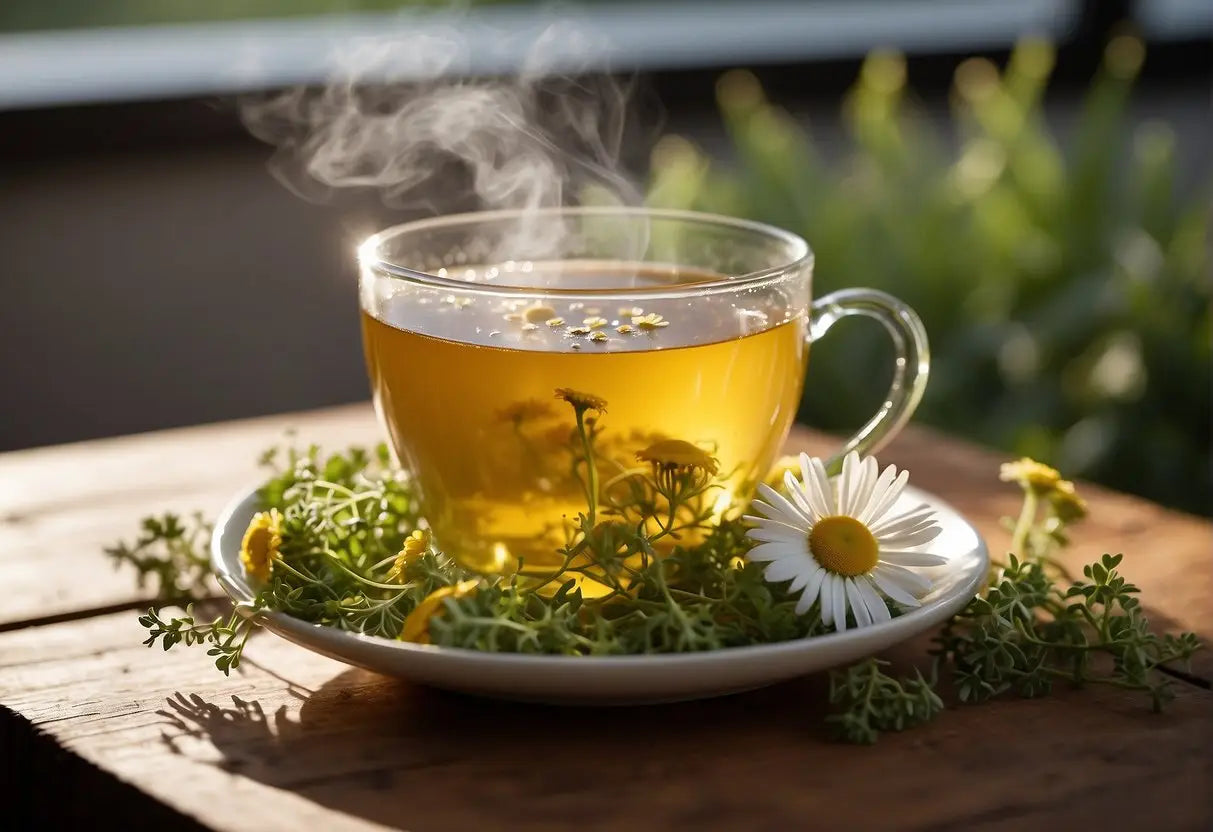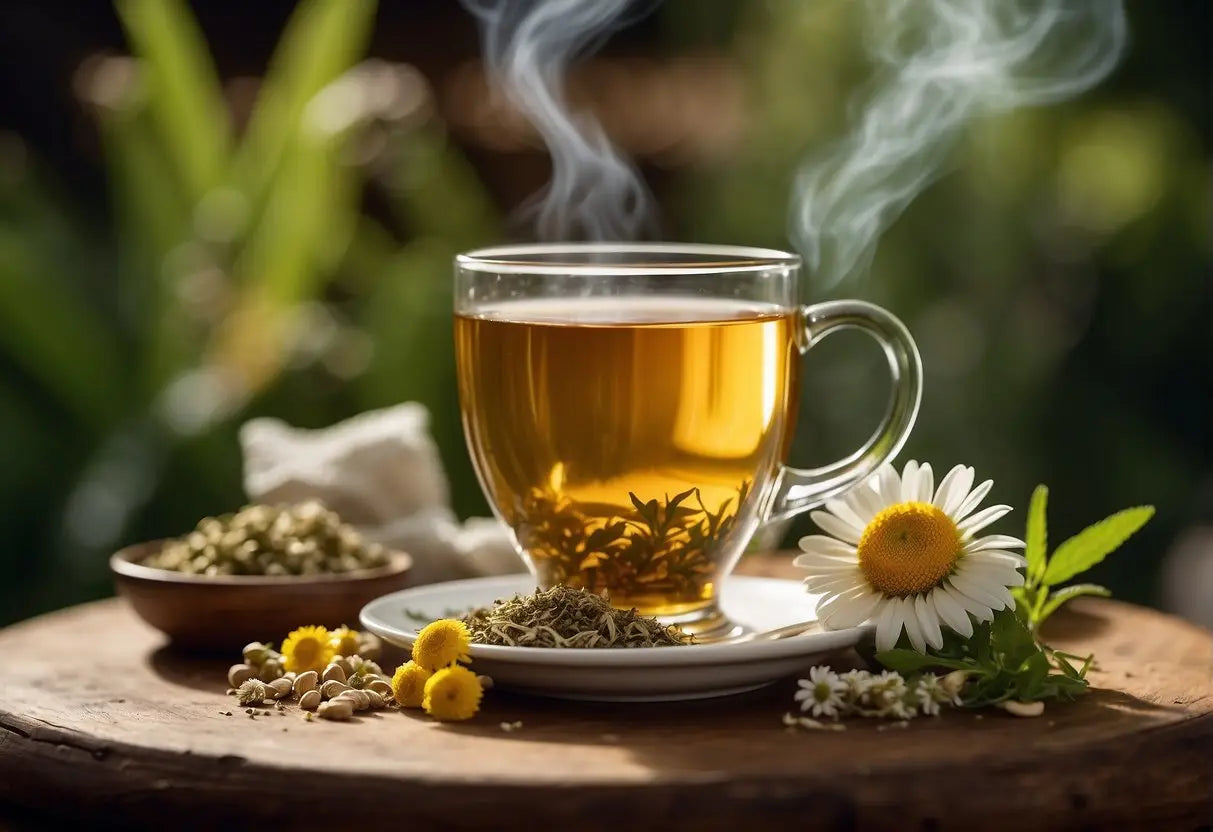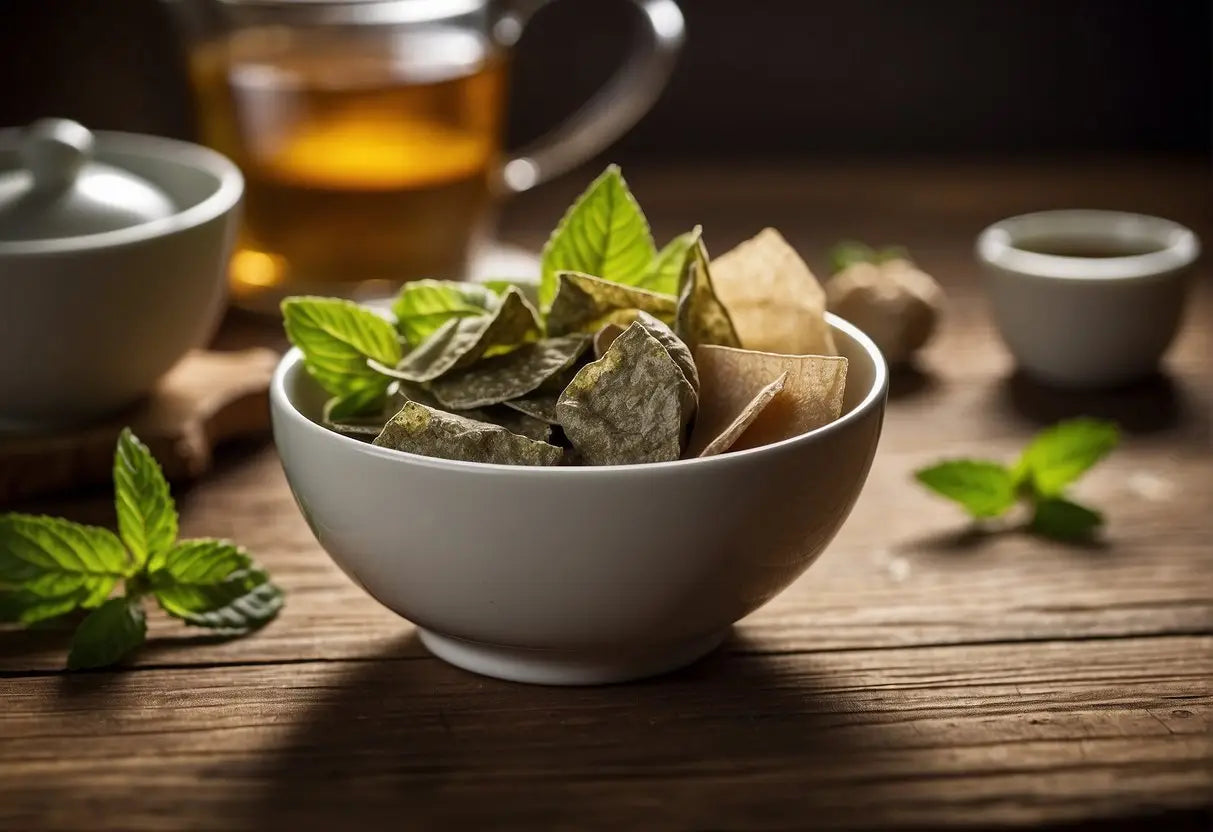What Tea is Good for Diarrhea
Shop our Pu Erh Tea collections!
When you experience diarrhea, it is crucial to understand its causes and how certain teas can aid your digestive system.
Causes of Diarrhea
Diarrhea is often a result of infections caused by bacteria, viruses, or parasites. Contaminated food or water, or diseases such as IBS, IBD, and celiac disease can also lead to this condition. Your body reacts by increasing stool liquidity and frequency to eliminate the irritants or pathogens.
Bestsellers
- Infections: Bacteria (e.g., E. coli), viruses (e.g., norovirus), parasites (e.g., Giardia).
- Food Intolerance: Difficulty digesting lactose, fructose, or gluten can lead to diarrhea.
- Medications: Antibiotics and other medicines can disrupt your normal gut flora, resulting in diarrhea.
- Digestive Disorders: Chronic conditions like irritable bowel syndrome (IBS), inflammatory bowel disease (IBD), and celiac disease.
Benefits of Tea for Digestion
Certain teas contain compounds with anti-inflammatory and antimicrobial properties, which can soothe your digestive tract and help manage diarrhea.
- Chamomile Tea: Antispasmodic effects may reduce cramping and discomfort.
- Peppermint Tea: Menthol can relax the digestive system and ease bowel movements.
- Ginger Tea: Gingerol helps with nausea and can improve digestion.
- Black Tea: Tannins can reduce intestinal inflammation and assist with proper stool formation.
Best Teas for Diarrhea Relief

Several types of teas can be beneficial for managing diarrhea. These specific teas may help with reduction of spasms, alleviate inflammation, and reduce fluid secretion in the intestines.
Chamomile Tea
Chamomile tea is known for its anti-inflammatory properties. It might help soothe the digestive tract and relax the muscles that move food through your intestines, potentially reducing diarrhea symptoms.
Peppermint Tea
Peppermint tea typically has a calming effect on the digestive system. Menthol, the main component in peppermint, is a natural antispasmodic, meaning it may reduce the spasms in the gut that lead to diarrhea.
Ginger Tea
Ginger tea is often used for gastrointestinal relief. It contains compounds called gingerols that may help decrease inflammation and promote normal digestion by preventing excessive fluid secretion in the intestines.
Rice Tea
Rice tea, made by steeping rice in boiling water, can help manage diarrhea. It's gentle on your stomach and can provide your body with needed fluids and electrolytes that may be lost during bouts of diarrhea.
How to Prepare Tea for Diarrhea
When preparing tea to alleviate symptoms of diarrhea, it is essential to consider the type of tea and how it is brewed, as well as the frequency and amount of tea you consume.
Brewing Techniques
To maximize the benefits of tea for diarrhea, select teas known for their soothing properties, like chamomile or peppermint. Use the following steps to brew your tea:
- Boil water – Start with fresh, cold water and bring it to a boiling point.
-
Steep properly – Place one tea bag or one teaspoon of loose leaf tea per cup into the boiling water.
- Chamomile Tea: Steep for 4-5 minutes.
- Peppermint Tea: Steep for 5-10 minutes.
- Temperature – Ensure the water is around 200°F to extract the full flavor and properties of the tea.
- Do not oversteep – This can lead to a bitter taste and may worsen symptoms.
Optimal Consumption
The frequency and quantity of tea intake can be crucial in managing diarrhea symptoms.
- Amount: Limit your intake to 2-4 cups per day to avoid potential side effects.
- When to drink: Consume a cup of tea after a meal to aid digestion or as needed for symptom relief.
- Duration: Monitor your symptoms and, if they persist, reduce the consumption or consult a healthcare provider.
Remember, while tea can help soothe diarrhea, it should not replace medical treatment if symptoms are severe or persistent.
Safety Considerations and Side Effects
When considering tea for diarrhea, it is important to be aware of potential risks and situations when tea should be avoided to ensure safe consumption.
Lao Ban Zhang
Potential Risks
- Caffeine Content: Some teas contain caffeine, which can worsen diarrhea as it stimulates your bowels. Stick to caffeine-free herbal teas.
- Overconsumption: Drinking large amounts of any fluid, including tea, can lead to water intoxication or an imbalance in your electrolytes.
- Herbal Interactions: Certain herbal teas may interact with medications or have contraindications for individuals with specific medical conditions. Always check with your healthcare provider.
When to Avoid Tea
- Pregnancy: Some herbs used in teas can be harmful during pregnancy. If you are pregnant, consult your healthcare provider before using herbal teas.
- Infants and Small Children: Avoid giving teas to infants and small children, especially those containing caffeine or medicinal herbs.
- Medical Conditions: If you have a history of heart conditions, kidney problems, or liver issues, consult your healthcare provider before incorporating new herbal teas into your diet.
Other Natural Remedies for Diarrhea

In addition to tea, there are specific diets and foods that can help manage diarrhea. These remedies focus on restoring balance and providing nutrients your body needs.
BRAT Diet
The BRAT diet stands for bananas, rice, applesauce, and toast. This diet is beneficial because these foods are bland and low in fiber, which can help to firm up stools. It's important you consume each component as follows:
- Bananas: High in potassium, they help restore electrolytes.
- Rice: White rice is preferable as it is low in fiber and easy to digest.
- Applesauce: The pectin in apples helps to absorb excess water in the intestines.
- Toast: Plain toast without butter can help bind stools.
Hydration and Electrolytes
Maintaining hydration is critical. Diarrhea leads to fluid loss, which must be replenished.
- Water: Aim to drink at least 8 glasses per day or as advised by your healthcare provider.
- Electrolyte Solutions: Drinks like oral rehydration solutions contain sodium and potassium, which help replenish lost electrolytes.
Probiotic Foods
Probiotics introduce beneficial bacteria to your gut. Here's a list of probiotic-rich foods you might consider:
- Yogurt: Look for labels that mention "live cultures."
- Kefir: A fermented milk drink with a variety of probiotic strains.
- Sauerkraut: Fermented cabbage which contains probiotics and is also a source of fiber.
Consistency in incorporating these foods into your diet can help manage and prevent diarrhea.
Frequently Asked Questions

When dealing with diarrhea, choosing the right tea can be instrumental for relief. These frequently asked questions and answers will guide you toward teas that have been traditionally used to help alleviate symptoms of diarrhea.
Can ginger tea help alleviate diarrhea symptoms?
Your symptoms can be alleviated by ginger tea due to its anti-inflammatory properties. It settles the stomach and assists in reducing spasms and gas that can cause discomfort.
What types of tea are recommended for both an upset stomach and diarrhea relief?
Peppermint and ginger teas are excellent for soothing both an upset stomach and diarrhea. They are known to relax gastrointestinal tissue and provide relief from cramping and spasms.
Does green tea have any benefits for treating diarrhea?
Green tea contains catechins that can have a mild anti-diarrheal effect. However, limit intake as its caffeine content can potentially worsen diarrhea if consumed in large quantities.
Can chamomile tea soothe diarrhea-related discomfort?
Yes, chamomile tea can help soothe the stomach and reduce intestinal inflammation often associated with diarrhea. Its calming effects can also relieve spasms and discomfort.
Which teas are considered effective for rapid relief from diarrhea?
Black tea, without milk or sweeteners, can assist in firming stool and providing quick relief. The tannins present have astringent properties that help reduce intestinal inflammation.
Are there any herbal teas known to aid with stomach pain and bloating?
Fennel and peppermint teas are particularly effective for stomach pain and bloating. They can ease pain by relaxing the digestive tract muscles and helping to expel gas.
← Older post Newer post →











